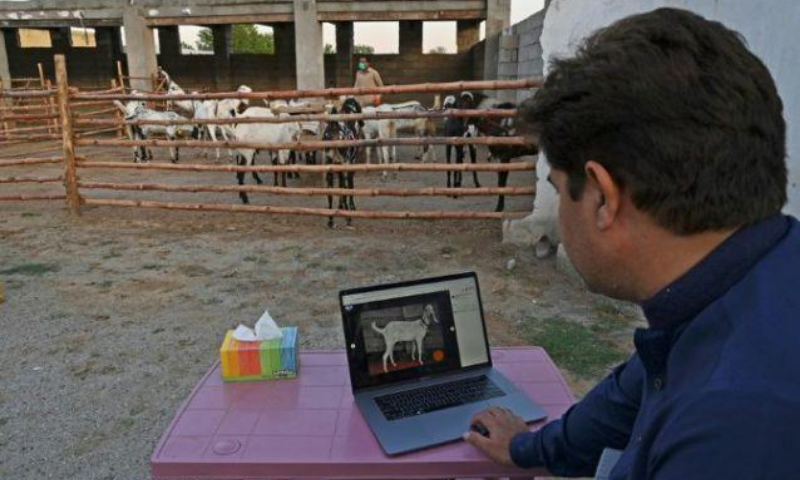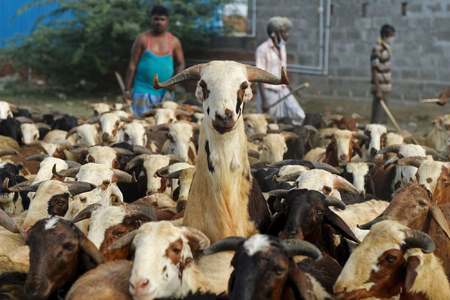Amid fears of another surge in new coronavirus cases in the country after Eid, many well-meaning people decided to take the safer route and do their qurbani via online channels.
But come the day of the festival, social media was flooded with complaints how they hadn’t received their orders or got stale meat, that they received less than promised quantity or had to stand in the queue for hours before finally receiving the packages.
However, this wasn’t just another e-commerce order where a little mishap with respect to delivery timings or even the quality of the ‘product’ could be let go on part of the customer. Given the religious nature of the transaction, things were complicated. The usual industry practices couldn’t be replicated and the concept of niyat also became a factor.
With the e-commerce industry already lacking trust, such bad experiences are only going to make things worse
Let’s first establish that by online qurbani, we mean commercial services and not those offered by madressahs, politico-religious organisations or charities in general. This reduces us to the likes of existing meat companies with retail presence, cattle farms and new seasonal players who saw an opportunity to make a quick buck, including both who were selling packaged and cut meat and the ones delivering live animals pre-Eid.
Read: Covid-19 changes dynamics of sacrifice
All the complaints I came across related to the packaged and cut meat, likely because of the operational challenges in executing them. It starts from the relatively easier part of procuring then to the slaughtering part, where some players (mostly the existing retail brands) had in-house capacity while the rest relied on others.
Finally and perhaps the most challenging bit: logistics. Deliveries are already the most challenging aspect of e-commerce businesses, according to founders. But now add another layer to it: the goods are perishable. This pushes up the costs since the usual mode of fulfilment — bikes — are no longer feasible while refrigerated vans are hard to access. Of course, none of that is really a customer’s problem since they were already paying a premium over the average ijtemai qurbani rates.
According to a small survey done with the help of the National Incubation Centre in Karachi, more than one-third of the respondents said they wouldn’t consider doing online qurbani next year. With the overall e-commerce industry already lacking trust, these bad experiences are only going to make things worse. But let’s dive in to see what went wrong and where.
“The industry wasn’t prepared for such big numbers, which grew exponentially because of the coronavirus. Particularly from the diaspora, there was a major increase in demand. Our own orders surged from around 6,900 last year to approximately 15,000 this Eid,” says MeatOne CEO Kamran Khalili.
According to him, these were the highest numbers while the industry’s overall figure couldn’t be more than 100,000 — a very rough estimate. “Generally, our complaints related to delays — up to three hours at worst — because of the increased load that we didn’t anticipate,” he adds.
“This is a new industry that’s still learning with new players entering, often seasonal, who usually don’t have either the frontend (retail presence) or the backend (slaughtering) to carry it out smoothly,” Mr Khalili continues.
As a result, many new entrants had to outsource their key services — from slaughtering to logistics — which limited their control over quality. Speaking to Dawn, Zain Ali Khan, CEO of Meating.pk, said, “We were planning to do everything in-house but when the orders grew beyond our capacity, we decided to partner up with slaughterhouses.” For logistics, too, the company partnered with Careem’s Last Mile.
His service reportedly fulfilled 150+ shares of cows and 18 goats. “We faced delays and had to move some deliveries to the second day, but given the small scale of our operations, it was possible to individually call customers,” says the founder. This helped them satisfy up to 90 per cent of the customers even if initially there were some issues, like delays or quality concerns, he adds.
Many of the vendors I spoke with also said how the scorching heat in Karachi on Eid day made things worse for them. “Three of our shares went bad en route to the customers because of the weather,” commented Mr Khan. But shouldn’t the answer to that be proper refrigerated vans instead of open Suzuki trucks and other vehicles? “It’s quite difficult to arrange them in the first place, plus the cost is significant. What we did instead was to have the van unload the meat at a central point from where despatches to customers were made.”
Meanwhile, Muhammad Aqib Mughal of QurbaniCare — a hybrid service providing both live animals and packaged meat — took a different route and kept everything in-house by hiring butchers for the whole day and trying to create a digital experience of the entire process along with own logistics. “Keeping both internally helped ensure quality,” he claims.
Hardly any player was safe from the reviews of angry consumers, be it the established brands like MeatOne, Zabiha, Meat Master, Laal Meat (reportedly the most notorious this year) or the newer entrants such as Meating.pk. A week since Eid, many of them have tried to either provide refunds or new packages, which should help assuage the concerns of some customers at least.
But these anecdotes of delays and compromised quality meat will certainly spread out around throughout, dealing a blow to this nascent industry.
Published in Dawn, The Business and Finance Weekly, August 10th, 2020















































